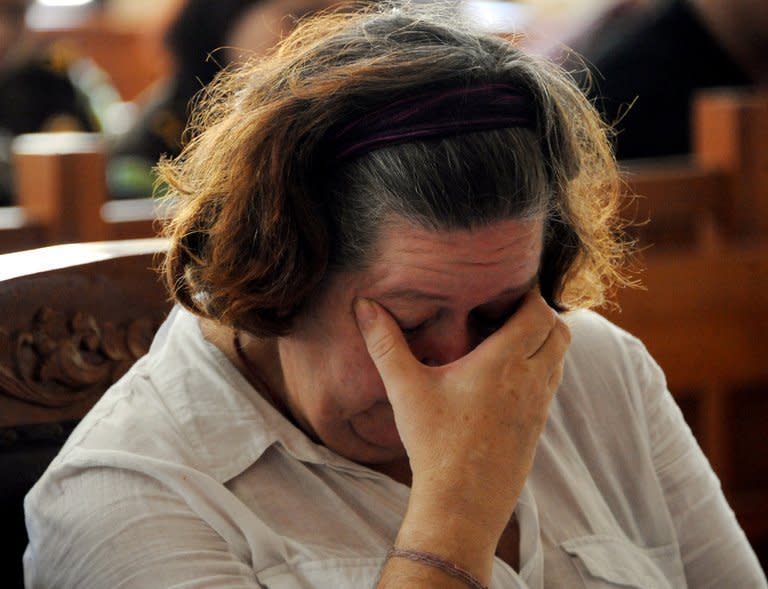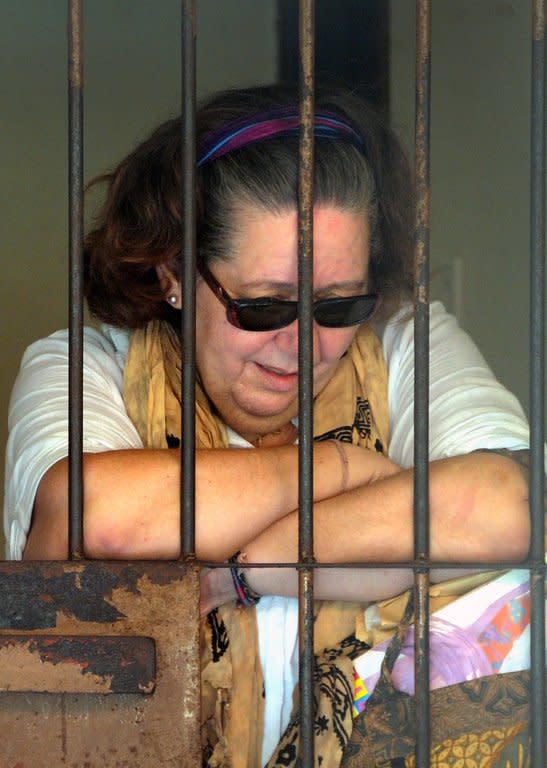UK grandmother loses death sentence appeal on Bali
A British grandmother sentenced to death for trafficking drugs into Bali faces a last-ditch appeal to Indonesia's highest court to avoid the firing squad, after her first bid to lift the sentence was rejected Monday. Lindsay Sandiford was sentenced to death in January after cocaine with an estimated street value of $2.4 million was found in her suitcase as she arrived on a flight from Bangkok last May, a shock verdict after prosecutors recommended 15 years imprisonment. Police said she was at the centre of a drugs-importing ring involving three other Britons -- but the 56-year-old claimed she was forced to transport the drugs in order to protect her children whose safety was at stake. On Monday a spokesman for the Bali High Court, sitting in the resort island's capital Denpasar, said a closed hearing of three judges rejected her appeal and decided the lower court's sentence was "accurate and correct". Sandiford has 14 days to appeal to the Supreme Court from when she is informed of the decision, the spokesman said. If the Supreme Court rejects her appeal, she can seek a judicial review of the decision from the same court. After that, only the president can grant her a reprieve. Most people sentenced to death for drugs offences fail to get their sentences lifted on appeal and face a long wait in jail before being taken to a remote, undisclosed location at night and executed by firing squad. Some have succeeded however, such as Scott Rush, a member of the Australian drug smuggling gang known as the "Bali Nine", whose death sentence was reduced to life after a judicial review by the Supreme Court in 2011. And last year President Susilo Bambang Yudhoyono pardoned two Indonesians convicted of drug smuggling, reducing their death sentences to life in prison. A spokesman for the British embassy in Jakarta said London was "disappointed" at the outcome of the appeal. "The UK strongly opposes the death penalty and has repeatedly made representations to the Indonesian government on this matter. We will continue to provide consular assistance to her at this difficult time." Britain has previously raised concerns about Sandiford's treatment in the island's notorious Kerobokan jail, alleging in papers submitted to Denpasar district court that officials threatened her with a gun and deprived her of sleep. But she lost a London High Court bid to make the government pay for a lawyer to help her appeal after two judges ruled it had "no reasonable prospect of success". When they handed down the death sentence, the Bali court rejected arguments she was transporting the 4.79 kilos (10.6 pounds) of cocaine to protect her children. It noted she had not admitted her crime and ruled she had damaged Indonesia's hardline stance on drugs as well as Bali's reputation as a tourism destination. Three other Britons arrested in connection with the case received lighter sentences. Julian Ponder was sentenced in January to six years in jail after being found guilty of possessing 23.04 grams (0.8 ounces) of cocaine with a street value of $6,000, found in the bedroom of his luxury Bali villa. He was arrested after receiving a package from Sandiford in a police sting mounted after she was caught. Rachel Dougall was sentenced to 12 months for failing to report Sandiford's crime and Paul Beales received four years for possession of 3.6 grams of hashish but was cleared of drug trafficking. They were sentenced in December. Two members of the "Bali Nine" who were arrested in 2005 are currently on death row, while the seven others face lengthy jail terms. A French man has also been on death row since May 2007 for drug trafficking. Indonesia carried out its first execution for several years last month when it put to death a Malawian drug trafficker.



